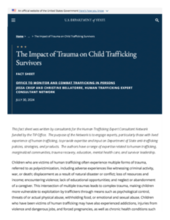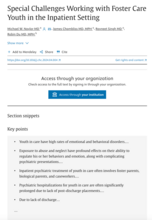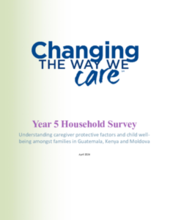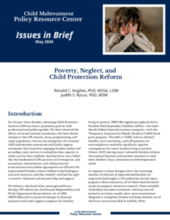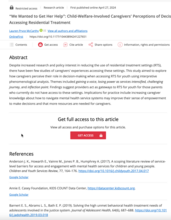This page contains documents and other resources related to children's care in the Americas. Browse resources by region, country, or category.
Displaying 111 - 120 of 3180
This fact sheet was engages with experts, particularly those with lived experience of human trafficking, to provide expertise and input on the U.S. Department of State anti-trafficking policies, strategies, and products. The authors have a range of expertise related to human trafficking, marginalized communities, trauma recovery, education, mental health care, and survivor leadership.
From 1819 to 1969, tens of thousands of children were sent to more than 500 boarding schools across the country, the majority run or funded by the U.S. government. Children were stripped of their names, their long hair was cut, and they were beaten for speaking their languages, leaving deep emotional scars on Native American families and communities. By 1900, 1 out of 5 Native American school-age children attended a boarding school. At least 80 of the schools were operated by the Catholic Church or its religious affiliates.
This article details the authors' findings that provide the first description of foster care trajectories in the US. Both practice and policy formulation can benefit from these empirically supported descriptions. Using such trajectory typologies, researchers can now explore how trajectories may predict wellbeing outcomes.
This article details to unique challenges faced by youth in care in the US when receiving inpatient treatment and how that varies in several ways from the care of non-foster care youth. Children in care have more medical, behavioral, and psychiatric problems and require health care at higher rates than youth not engaged in the child welfare system.
The Changing the Way We Care (CTWWC) initiative conducted its Year 5 Household Survey as part of its commitment to building evidence around outcomes for children and families in the context of care reform. The second round of this survey in Kenya and Guatemala, and first round in Moldova, aimed to understand the impact of CTWWC interventions on children and families transitioning from residential care to family-based alternatives or receiving support to prevent separation.
Since the coordinated attacks operated by armed groups in late February, UNICEF and its partners have rapidly scaled up their efforts, reaching over 50,000 displaced children and families impacted by the resurgence of violence in various parts of
This webinar aimed to create space for reflection on how child rights, parental rights, and family values intersect within faith communities and in public discourse.
This webinar aims to create space for reflection on how child rights, parental rights, and family values intersect within faith communities and in public discourse.
The purpose of this document is to explore why and how Child Protective Services (CPS) evolved from a highly specialized system designed to investigate and respond to allegations of serious child abuse and neglect to a system expected to provide social services and material supports to impoverished families unable to meet their children’s basic needs.
This U.S.-based study aimed to explore how caregivers perceive their role in decision-making when accessing residential treatment settings (RTS) for youth using interpretive phenomenological analysis.


